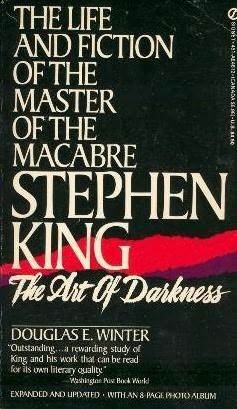
 When I first began reading horror fiction, most of it was populated by educated, successful characters. Writers were a popular choice. I was fine with it, and I still am, but by the mid-eighties the genre needed a jolt from a different demographic. John Skipp and Craig Spector gave it to us.
When I first began reading horror fiction, most of it was populated by educated, successful characters. Writers were a popular choice. I was fine with it, and I still am, but by the mid-eighties the genre needed a jolt from a different demographic. John Skipp and Craig Spector gave it to us.
With the publication of The Light at the End we had characters from another class and fiction designated for a different demographic. Those who barely made it through high school. Or didn’t get a diploma at all. The disenfranchised, the ones who were dealt a bad hand from the start. People like me and my friends, in other words.
Many of the people I grew up with had ideals, but most lost sight of them. Bitter disappointment after disappointment hardened our hearts. We partied to celebrate our youth and to be free of the constraints of society, but the partying quickly began to take a toll, and burnout set in. We were more concerned with the next beer, the next gore movie, the next gorge-out buffet than bettering the world or ourselves.
Our lives were badly in need of a cleanup.Continue Reading




 The October 1988 issue of Rod Serling’s Twilight Zone Magazine had a big feature about Splatterpunk authors. Editor Tappan King was reportedly trying to create a movement.
The October 1988 issue of Rod Serling’s Twilight Zone Magazine had a big feature about Splatterpunk authors. Editor Tappan King was reportedly trying to create a movement. When I first began reading horror fiction, most of it was populated by educated, successful characters. Writers were a popular choice. I was fine with it, and I still am, but by the mid-eighties the genre needed a jolt from a different demographic. John Skipp and Craig Spector gave it to us.
When I first began reading horror fiction, most of it was populated by educated, successful characters. Writers were a popular choice. I was fine with it, and I still am, but by the mid-eighties the genre needed a jolt from a different demographic. John Skipp and Craig Spector gave it to us.
 Richard Laymon is one of the most controversial authors in the horror genre. I don’t see him discussed so much anymore, but at one time his work was hotly debated.
Richard Laymon is one of the most controversial authors in the horror genre. I don’t see him discussed so much anymore, but at one time his work was hotly debated. Horror was in a time of transformation in 1994. John Skipp and Craig Spector’s final novel, Animals, had been published the previous year. The original Splatterpunk era was over. Necro Publications and the underground hardcore horror fiction wave was a couple of years ahead. Cemetery Dance had spearheaded the small press revolution, but it was still gaining momentum. The biggest thing in the genre, other than King and Barker of course, was the Dell/Abyss line of postmodern horror paperbacks.
Horror was in a time of transformation in 1994. John Skipp and Craig Spector’s final novel, Animals, had been published the previous year. The original Splatterpunk era was over. Necro Publications and the underground hardcore horror fiction wave was a couple of years ahead. Cemetery Dance had spearheaded the small press revolution, but it was still gaining momentum. The biggest thing in the genre, other than King and Barker of course, was the Dell/Abyss line of postmodern horror paperbacks. Enter the Wayback Machine and go back to 1984. I was still shrugging off the science fiction habit I had all my life and becoming a full-fledged horror fan. I read authors like Grant, Straub, Wilson, Etchison, Campbell. And of course Stephen King. When I finally got around to reading him, my reading life changed forever. Pet Sematary had just been released in paperback. Ahead were wonders like The Talisman, Thinner, Skeleton Crew, and It.
Enter the Wayback Machine and go back to 1984. I was still shrugging off the science fiction habit I had all my life and becoming a full-fledged horror fan. I read authors like Grant, Straub, Wilson, Etchison, Campbell. And of course Stephen King. When I finally got around to reading him, my reading life changed forever. Pet Sematary had just been released in paperback. Ahead were wonders like The Talisman, Thinner, Skeleton Crew, and It.
 I first heard of and begin reading fiction from John Skipp and Craig Spector in the mid-1980s. That era is still my favorite period of the horror genre. Thanks to Stephen King, horror had been doing pretty big business, but by 1986 things were really getting wild. For most people it all started with Skipp and Spector’s The Light at the End, a new kind of horror novel, and a vampire story for a hip young readership.
I first heard of and begin reading fiction from John Skipp and Craig Spector in the mid-1980s. That era is still my favorite period of the horror genre. Thanks to Stephen King, horror had been doing pretty big business, but by 1986 things were really getting wild. For most people it all started with Skipp and Spector’s The Light at the End, a new kind of horror novel, and a vampire story for a hip young readership.